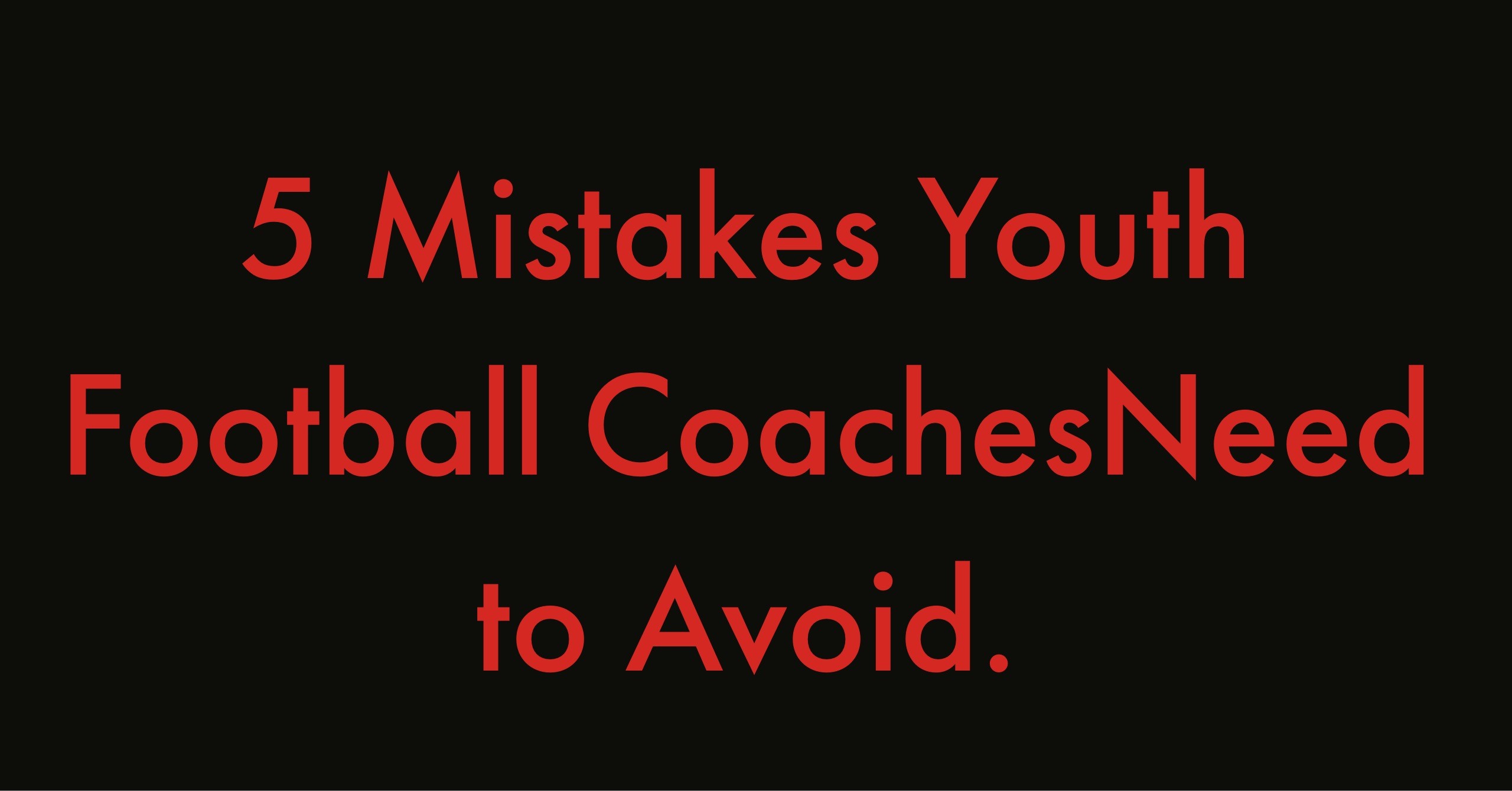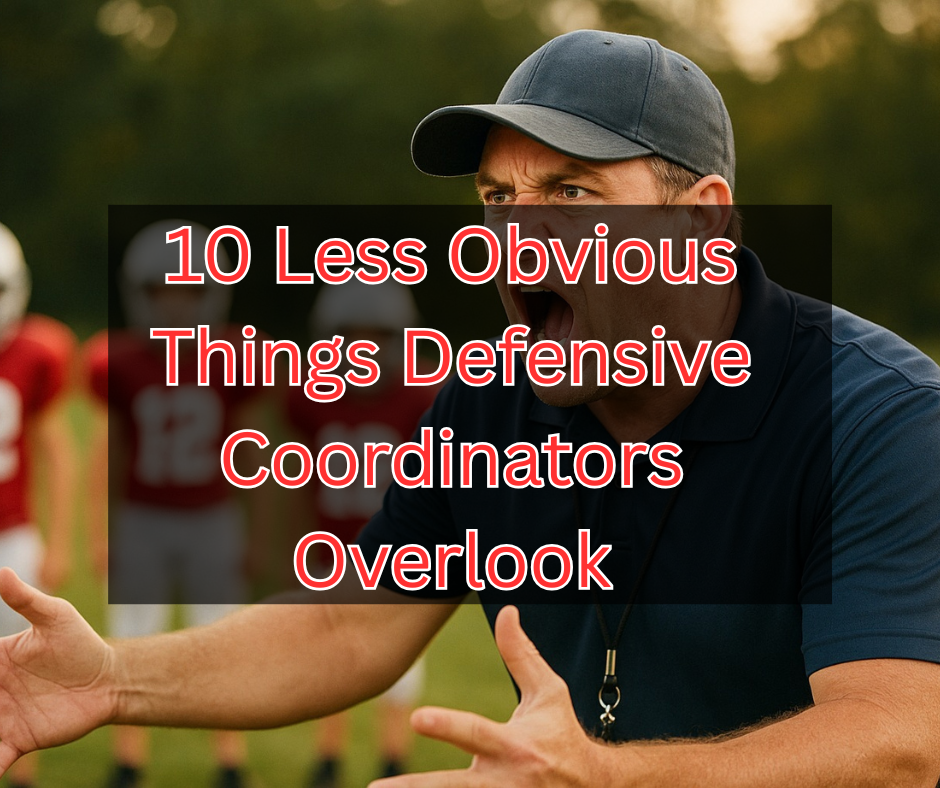Five Mistakes For Youth Football Coaches To Avoid

Our friends at My Sports Dreams have written a guest article for us on 5 common mistakes that
Five Mistakes For Youth Football Coaches To Avoid
Mistake No. 1: Channeling Rex Ryan. It’s fun to watch coaches get all worked up and yell at officials, right? Of course it is, but in the NFL, coaches and players are making millions of dollars and a blown call can change a season. At the youth level, you have to remember that your biggest indicator of success is whether the kids learn something, and believe me, they can learn bad habits even more easily than they’ll learn good ones. Yelling at referees is unethical and counterproductive to your teaching role as a coach. If you have a legitimate complaint about an official (whether it be bias, irresponsibility, lack of knowledge, whatever), wait until afterwards to discuss them. Be calm and ask for an explanation. You can also call the league office or talk to directors about it. Some refs just have bad days, but some leagues have bad refs – and your job is to not only know the difference, but also how to handle it.
Mistake No. 2: Forgetting That YOU are the Coach.
3: Raising the Bar Too High. As I said, every parent thinks their child is a supreme talent. That’s understandable, as is a coach believing that some players are better than others. It’s nature. However, placing lofty tags or expectations on certain kids can have an adverse effect. Even worse, saying things you think are supportive – things like “you guys should shred this defense today” – can be construed as expectations. Studies have shown that in situations like that one, athletes often think they have to be perfect, and are letting you down if they aren’t. Overly high expectations can cause athletes of any age to focus too much on the results, and that often leads to easy frustration. While you can’t control a parent’s expectations, you can remind your players that if they’re doing the best that they can, no one can ask for more.
Mistake No. 4: Winning At All Costs. Again, everyone wants to win, but trust me – more players will remember that you gave them skills for the future than any single victory they have. So, instead of making winning the primary goal, focus on more manageable objectives that help kids focus on development. For example, instead of asking your players to score on every drive, urge them to look for the other team’s tendencies, identify formations, etc. Learning “on the job” is sometimes the most effective way to build skills for the future. And, most importantly above all, remind players to let go of mistakes quickly. There has to be a winner and a loser on every play even – and no one in history has ever been perfect.
Mistake No.5: Thinking You Know It All. Just like your











